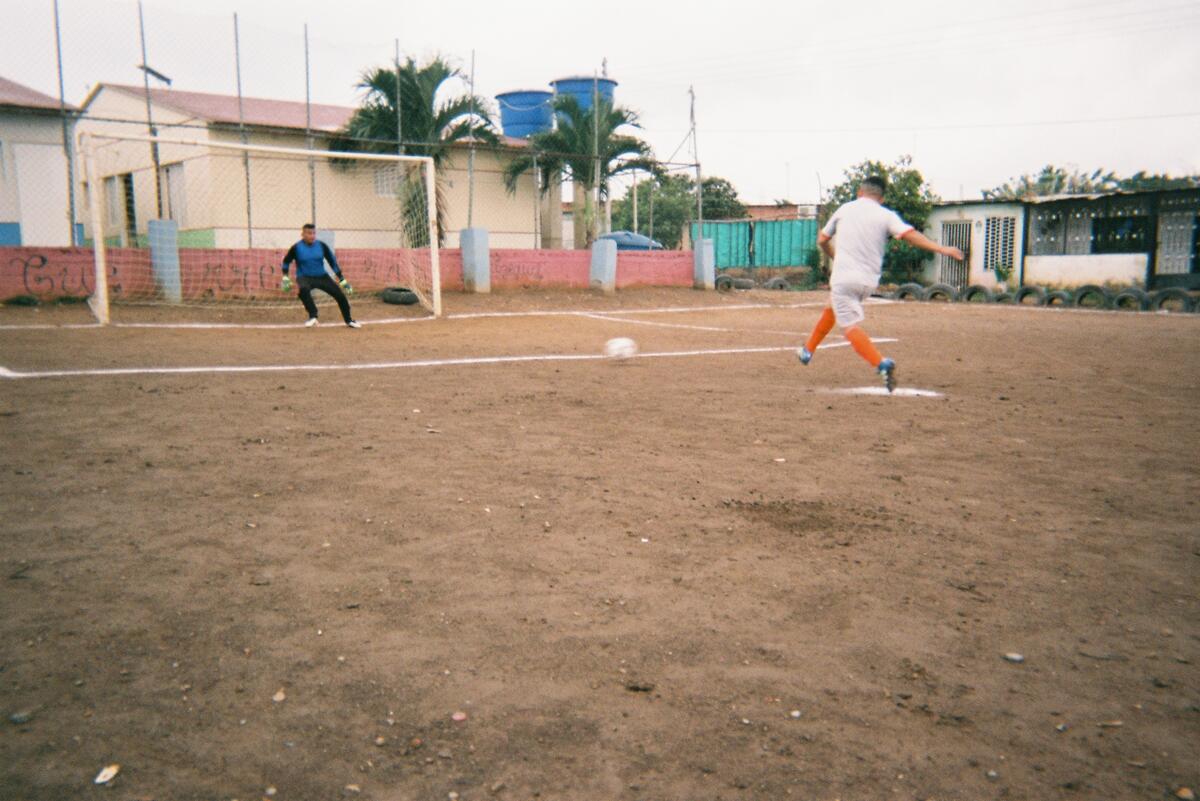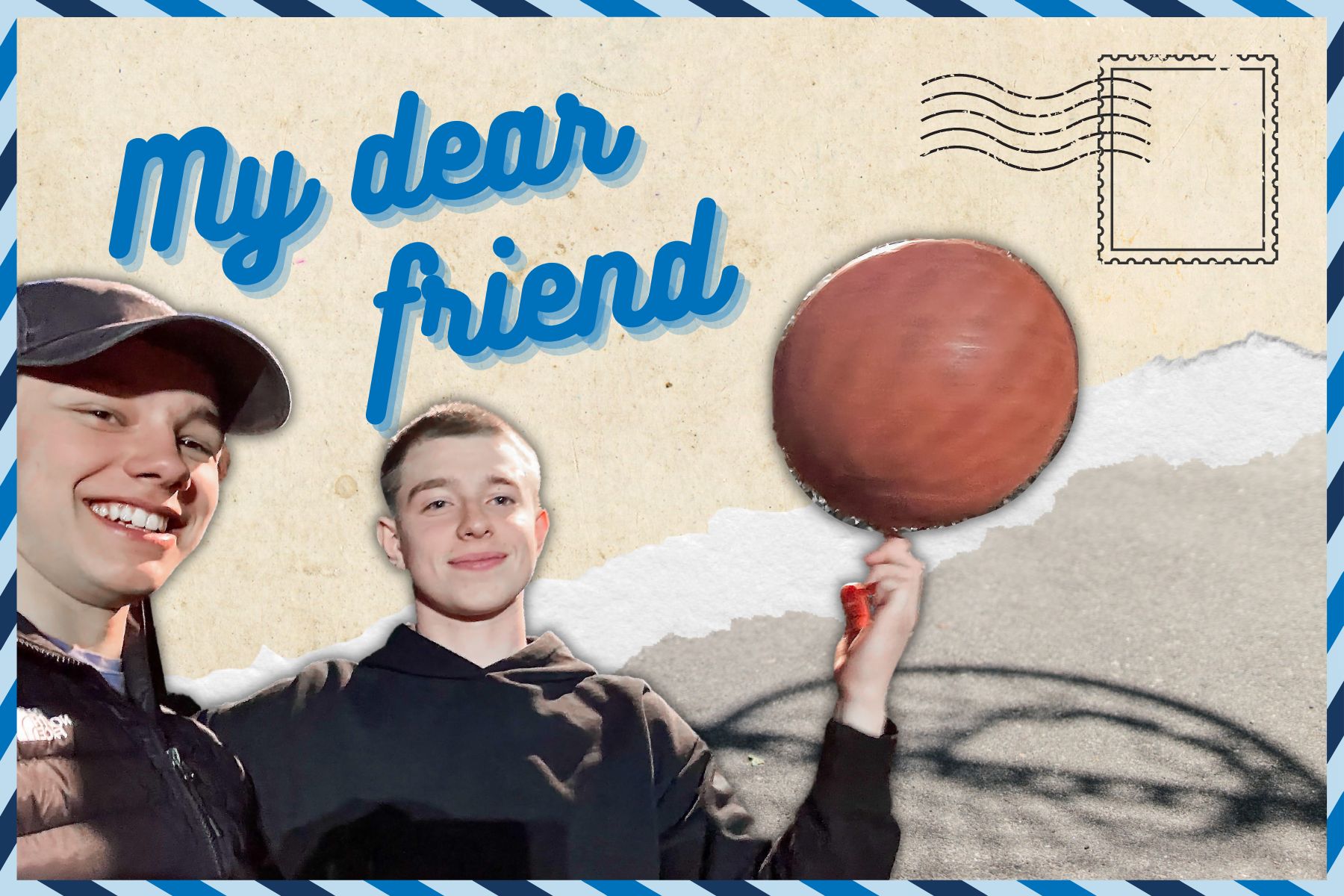Top Italian football coaches train refugee and local youth in Uganda

Top Italian football coaches train refugee and local youth in Uganda
Patrick Amba tries on a pair of new soccer boots, a deep blue t-shirt with a red stripe, and white shorts – the colors of Sampdoria, one of Italy’s top league football clubs.
The 14-year-old refugee from South Sudan was among 64 players from refugee settlements and hosting communities in northern Uganda, chosen to train with coaches from Sampdoria camp.
“When I play football, I am happy, I feel like I am an important member of the community and I can share my ideas,” said Patrick.
Resources like balls and shoes are scarce here but football remains an escape for players and spectators alike - a source of hope that the sport can one day be an opportunity for a better life.
"I will take responsibility for my sisters and my parents.”
“Football can help me in the future in many ways. It helps me make friends. I want to be so good at football so that I can help my family. My mother struggles to take care of the family and I want to help her. I will take responsibility for my sisters and my parents,” Patrick says.
Patrick’s family fled their hometown in Yei three years ago, walking for days until they found safety across the border in Uganda, which hosts more than 1 million refugees from about five countries, most of them from South Sudan.
The majority of South Sudan’s refugee population is under the age of 18 and more than half are out of school or struggling to learn in ill-equipped, overcrowded facilities.
“All day you think about those you left and those you have lost but when you are on the pitch that stress goes away,” said Stephen Abe, 21-year-old refugee player and coach.
Sampdoria coaches, Marco Bracco and Roberto Morosini said they wanted to offer hope and show their solidarity with young football lovers.
“Refugees face a lot of problems so maybe for three days they can focus only on football. It was our little dream and now we are here, and we are very happy,” said Marco.
The 73-year-old football club partnered with the Italian embassy in Uganda, the International Olympic Committee (IOC), the Ugandan Olympic Committee (UOC), The Federation of Uganda Football Association (FUFA), Italian NGO, ACAV and UNHCR, the U.N. Refugee Agency.
“When children are not at school, they don’t have much to do in the settlements, so sport keeps them busy and active. It also helps them make new friends and this promotes peace. These kinds of activities have a great impact,” said James Bond Anywar, a protection assistant with UNHCR.
The three-day training scheduled a series drills on dribbling and passing the ball to build coordination, control and discipline.
“Their game is more technical than tactical, and they play very physical soccer. Our target is to hear them say, ‘I know what it means to play like a professional player,” said Marco.
“I think they are very good because the pitch is very difficult so it’s not normal to play here but they have a lot of heart,” said Roberto.
Training was followed by a tournament between four teams from different settlements. Patrick’s team scored the first goal, sending supporters on the sidelines into cheers, but they struggled to maintain ball possession for the rest of the game, and lost 2-1.
It was a lot to bear for Patrick. He pulled off his newly broken-in soccer boots and buried his face as his coach and friend, Stephen tried to comfort him.
“When I saw him shedding tears, I was heartbroken,” said Stephen. “Patrick is one kid who has something, and he is proud of it, he can show it to people.”
Patrick’s team finished fourth and a team from Bidi Bidi, a settlement further north of Uganda took the winning trophy but all the players shared the same level of motivation.
“The best thing about this was the training. It was so important. I am now confident with the moves and I have more knowledge,” said Patrick.
“We saw passion here. We have passion, but these boys’ commitment is very high. After this experience I can go back and I can explain to my own players that there are people that play without shoes, without a pitch and still want to play,” said Roberto.
This camp also marks the launch of a three-year sports education program for refugees and Ugandans that will offer training, coaching and sports management courses. The activities will also continue the work of peacebuilding between refugees and hosting communities.
“We want them to be together such that tomorrow when they go back, they will preach the same thing. When they preach such a philosophy, what happens is that it spreads like an infectious disease…” said Haruna Mawa, a former Ugandan national player, who coached alongside Sampdoria during the tournament.
Back home, Patrick focuses on his chores.
"When I played, I felt big. I felt like a big star."
“I sweep my room and I take care of the animals then I fetch water and after that, then I am free to play football because I do my chores early in the morning,” he says.
When the work is done, Patrick receives a nod from his mother, Rose before he picks up his ball and starts to kick it around the small piece of land where his family keeps chickens and grows tomato and watermelon. His friends call him Salah, after the Egyptian Liverpool player, Mo Salah.
“I was one of the youngest on the pitch but when I played, I felt big. I felt like a big star,” said Patrick.
Rose has always been proud of her son but is cautious not to let him limit his dreams.
“I encourage him to go to school and not to forget about his studies. He should study and play football at the same time.”













